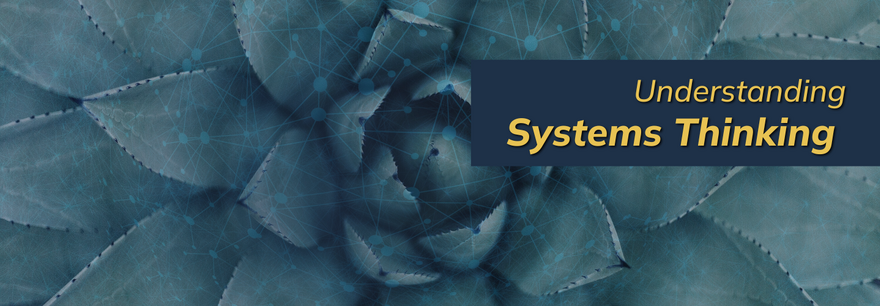What is "Systems Thinking"?

This video is 1 of 3 in which Felicia Chavez, instructor of the Gaia Education Systems Thinking for Real World Change course, introduces participants to a framework for "thinking about systems thinking."
The three main points are:
1) 🤝 Systems thinking is about relationships
This means relationships between you and another person, between groups of people, between species, or even between abstract principles. As systems thinkers, we are fascinated by the spaces "in between."
2) 🧠 Systems thinking means the cognitive capacity to hold the one and the many at the same time ("Context")
Believe it or not, astrology is a handy way to think about "holding the one and the many," and we use this example briefly in the course. If you are a Leo but your "ascendent" is Aquarius and your moon is "in Pisces," well, you can quickly see how your mind has to hold a multiplicity of complex factors and synthesize them into meaning... which is what astrologers are able to do. Similarly, ecological scientists have to find ways to hold a variety of species and ecological factors all at once to understand how they interact; anthropologists, designers, and even stock market brokers...all are attempting to "hold the one and the many" to build a coherent picture of reality. But systems thinkers seek out these complex pictures and have made an art and science of this practice.
3) 👁️ Systems thinking is a change in perspective, from the short-term to long-term; narrow to wide; shallow/surface to deep; outer to inner
This is, of course, relative. If, in your personal life, you tend to think two to three years into the future, and concern yourself with the wellbeing of your immediate family, systems thinking asks you to think more generationally, and to in certain ways concern yourself with the wellbeing of the human species.
If, say, as a city planner your default perspective tends to be 20 years and focused on your city, systems thinking asks you to expand that out to 100 years or more, and to see your work in a national, if not global context.
These points of view and more are part of the challenging and often surprising universe of systems thinking.
💫 Start your Systems Thinking journey!
If you want to start your Systems Thinking journey in the best way, come to the Systems Thinking for Real-World Change course.
In this course, you'll discover practical ways to apply systems thinking in your daily life and professional environment. We’ll guide you through both hands-on techniques and insightful approaches to viewing systems on a deeper level. You’ll also learn accessible frameworks to navigate the vast array of systems models and find clarity in applying these methods to your work. Plus, we’ll help you identify the next steps for your continued growth in systems thinking.



0 comments
Leave a comment